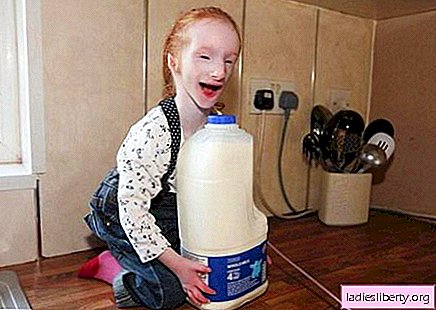
During pregnancy, areas of the brain that are responsible for the subsequent care of the mother for the baby change. The result of a long-term study was published in the journal NatureNeuroscience.
Why does the mother's mental state change after childbirth?
Birth is the first mental and physical shock that a child and a future mother are experiencing. Pregnancy is associated with a significant change in hormonal balance.
The concentration of progesterone in the body rises 10-15 times. A woman’s body is literally “flooded” with female sex hormones in an amount that exceeds total production during the rest of her life.
Hormonal changes have a significant effect on cardiac output, blood volume, and intestinal absorption of nutrients. The above effects have been documented in numerous studies.
However, little attention has been paid to the effects of hormones on the brain. In rodents, for example, there are significant changes in the structure of the brain, which affects the behavior in the postpartum period.
What results were obtained during the research?
Are there similar phenomena in humans, studied Elselin Hoekzema from the University of Barcelona. The study involved 25 women who wanted to have children.
Researchers performed two MRI scans: the first before pregnancy and the second after the birth of the baby. For comparison, 19 new fathers were examined, as well as 20 non-pregnant women and 17 men without children.
Computer analysis showed what was not immediately visible when scanning MRI. During pregnancy, there was a slight decrease in volume in areas of the brain that are responsible for social activities. In fathers and other control groups not subject to hormonal changes, a decrease in volume was not observed.
However, according to scientists, a decrease in brain volume does not mean that pregnancy is associated with the loss of brain cells. The exact justification for changes in the structure of the brain has not been studied by researchers. Hormones are more likely to reorganize neural connections.
The researcher makes a comparison with puberty. In this phase of life, which is also caused by a change in hormonal balance, degradation of nerve connections occurs. Scientists compare degradation to "pruning trees."
A hypothetical thesis suggests that changes in the brain do not lead to a loss of mental abilities. Women achieve the same results in the corresponding tests as men, women without pregnancy. However, pruning can help improve maternal affection for the baby.
The brain centers responsible for affection showed increased activity when mothers were shown images of children. Further studies have shown that these changes persist for at least 2 years after the birth of the baby.
How do complications of childbirth affect the psyche of the mother?
Complicated vaginal births have a big impact on the emotional development of the baby. If the baby does not turn correctly in the birth canal, you have to apply vacuum extraction of the fetus or the application of obstetric forceps. Violence against a child can lead to internal and external injuries, and to the suffering of the mother.
Sometimes head injuries occur, and in some cases, the result is headaches or migraines throughout life. Tumors, bruising, and possibly psychological trauma are other consequences.
Often childbirth begins too early. The hormone oxytocin causes childbirth, although the fetus and mother's body are not ready. Many women describe this experience as "something that makes them give birth." As a result, they do not feel that they are in control of childbirth, and it is much more difficult for them to keep up with their contractions.
Mother is not in harmony with her body and child. A fetus that is not yet ready for birth is expelled from the uterus by artificially induced contractions. Often such a birth ends with forceps or a vacuum.
Some mothers describe preterm labor as unsatisfactory and forced. Unpleasant feelings sometimes delay or complicate the emotional bond between mother and child.











